The Starbucks Economy
In its own way, Starbucks has a lot in common with SUVs, hot tubs and television screens wide enough to fill a wall. That is, it represents the bit-by-bit extravagances that helped get us into the tight economic jam we find ourselves in today.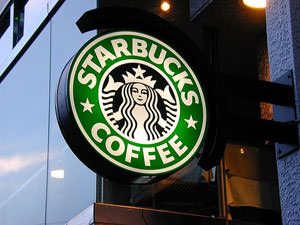
I’m not one to take lightly the loss of 12,000 jobs, especially when they come with good benefits such as health insurance and vacations for part-timers. Still, I’m finding it hard to suppress a bit of smugness over the downsizing of Starbucks, the ubiquitous coffee chain that put the word latte on everyone’s lips.
By next week, the first of 600 stores Starbucks intends to close will be shuttered, a shrinkage necessitated by a drop in profits and an overall drift of purpose that seems to have thrown the company into the type of identity crisis some of its patrons try to work out while lounging at the cafe. My irritation is directed at neither the company’s management nor its employees, but at the Starbucks culture. It’s always annoyed the heck out of me.
Starbucks seems to be a place that carries a whiff of excess. In its own way, it has a lot in common with SUVs, hot tubs and television screens wide enough to fill a wall. That is, it represents the bit-by-bit extravagances that helped get us into the tight economic jam we find ourselves in today.
I never did develop the Starbucks habit, an addiction that can cost otherwise levelheaded people $25 or more per week. Years ago, I remember shocking a colleague when I told him I walked across street each morning to get coffee at a shop where the basic brew was a dime less than a comparable cup at the Starbucks just an elevator ride down from my office. I could have easily afforded the 50 cents extra per workweek, but what was the point? A brewed coffee was a brewed coffee. And since neither Starbucks espresso nor its various versions of “latte” bear much resemblance to the real things I’ve consumed in Italy (or even growing up in an Italian-American neighborhood), I never much cared for them. Eventually, I gave up buying coffee from a shop altogether. Not that there’s anything wrong with that.
But the list of stores Starbucks is closing is a revelation. It shows that the company expanded to byways of America where I have no doubt that a decade ago, few would have deliberated the purchase of an expensive coffee, let alone an oddly named beverage. Take, for example, the store that is about to go dark in Triadelphia, W.Va.
That’s near Wheeling, in the heart of an old steel and coal region that has struggled economically for what seems an eternity. “We haven’t had retail [growth] in our county for 30 or 40 years now,” says Greg Stewart, the development director for Ohio County.
Yet the county has succeeded recently in developing a major retail and office park, which has generated about 3,000 new jobs. Big-name discount department stores were lured in, and a big draw is Cabela’s, a huge hunting, fishing and camping emporium. In 2007 when Starbucks wanted to move in, local officials had hoped the coffee shop would take a storefront in the “lifestyle center” of the development, which features a theater and a pedestrian space. But the company chose a different spot in the development. And so, only a year after it opened, this is one of the first shops in the country that Starbucks will close.
Bridget Baker, a Starbucks spokeswoman, said she couldn’t discuss store-by-store performance, nor would she disclose what the most popular purchase was in Triadelphia. She did volunteer that Starbucks offers more than 87,000 different “beverage combinations.”
“Coffee seems to be something that’s popular among a wide group of people,” Baker says. “Obviously customers want us to be there. That’s how we choose sites.”
Still, the people of Ohio County aren’t exactly latte liberals — a political term that could not have been coined without Starbucks. The median household income there in 2005 was $34,199, according to the Census Bureau. Four years ago, the county voted overwhelmingly to re-elect President Bush. In this year’s Democratic primary, Hillary Clinton won 58 percent of the vote against Barack Obama.
Some neighborhoods are fighting to keep their Starbucks. Included among them are Manhattan shops serving upscale offices and, according to The New York Times, a cafe in downtown Newark, N.J., that has become a meeting spot and a symbol of resurgence in the city.
And Triadelphia does like coffee. Stewart says he’s already in talks with other food purveyors and is hopeful about filling the storefront soon: “We’d love to just put Dunkin’ Donuts right in that space.”
Unglamorous, perhaps. But maybe good to the last drop.
Marie Cocco’s e-mail address is mariecocco(at)washpost.com.
© 2008, Washington Post Writers Group
Your support matters…Independent journalism is under threat and overshadowed by heavily funded mainstream media.
You can help level the playing field. Become a member.
Your tax-deductible contribution keeps us digging beneath the headlines to give you thought-provoking, investigative reporting and analysis that unearths what's really happening- without compromise.
Give today to support our courageous, independent journalists.
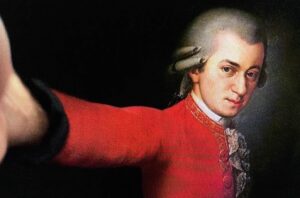

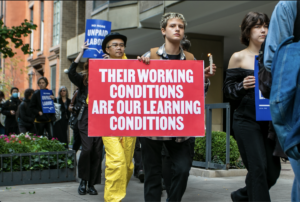
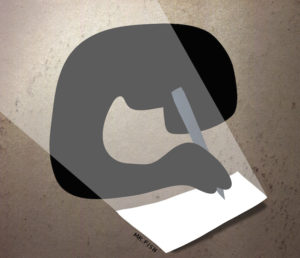
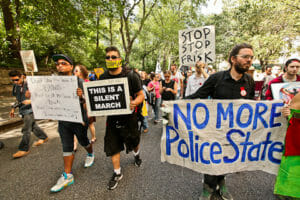
You need to be a supporter to comment.
There are currently no responses to this article.
Be the first to respond.